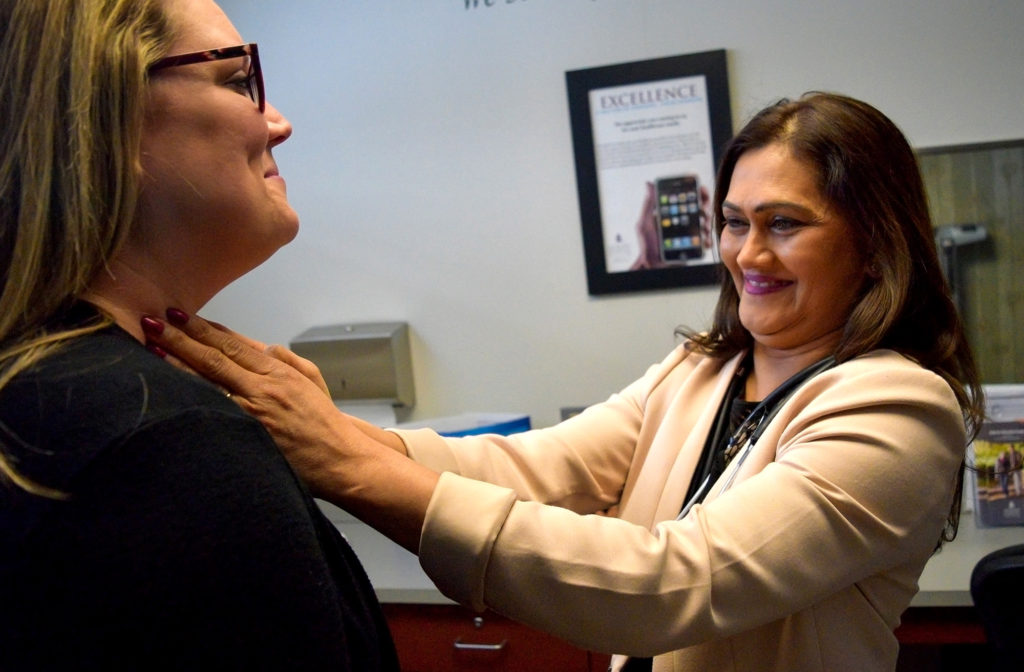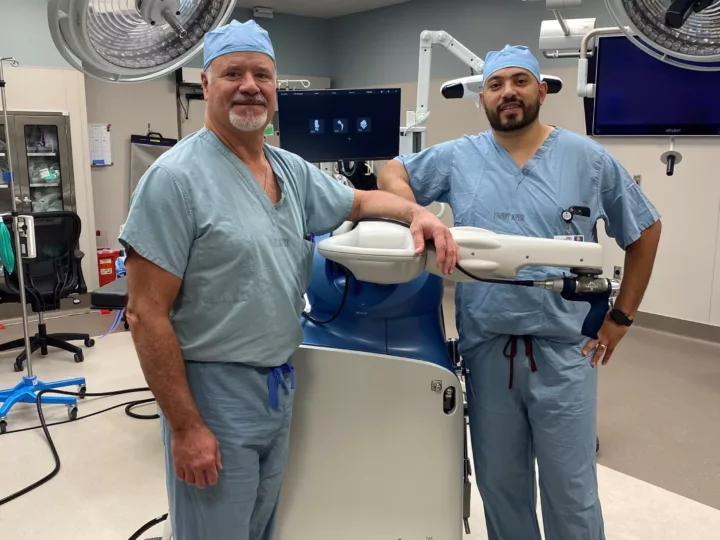Signs of a thyroid disorder are often hard to spot
 The signs of a thyroid problem can be subtle.
The signs of a thyroid problem can be subtle.
Many people often mistake their symptoms for being stressed, overworked, not eating right, early onset menopause, signs of aging, or such mental illnesses as major depression, general anxiety or bipolar disorder. They usually don’t realize the symptoms they are experiencing are the result of abnormal thyroid function.
The thyroid, a small butterfly-shaped gland in your neck, releases hormones into your body that control metabolism – speeding it up or slowing it down, depending on their levels. When at optimal levels, thyroid hormones keep your body in balance. When they’re off, they can throw everything else off, too.
“Thyroid hormones affect every system in your body,” says Dr. Nuzhat Chalisa, a board-certified endocrinologist with Morris Hospital & Healthcare Centers. “It’s very important to keep thyroid levels normal.”
Dr. Chalisa says the most common thyroid disorder is hypothyroidism, which is an under-functioning thyroid gland.
Affecting nearly 1 in 20 Americans over the age of 11, hypothyroidism can cause weight gain, depression, fatigue, sluggishness, sensitivity to cold, memory problems, mental “fogginess,” constipation, a slow heart rate, dry skin, hair loss and heavy or irregular menstrual periods.
When the thyroid produces too much hormone, symptoms can include a racing heart, heart palpitations, irritability, anxiety, trouble sleeping, weight loss, muscle weakness, irregular menstrual periods, thin skin, brittle hair and nails and increased sweating.
The symptoms are bad enough, Dr. Chalisa says, but not getting treatment can be worse, leading to abnormal heart rhythms and heart disease, stroke, osteoporosis, bone fractures and more.
Pregnant women who have untreated thyroid problems can have premature births or stillbirths, and their babies can be born with congenital malformations or cognitive impairments.
“The fetus doesn’t make its own thyroid hormones,” Dr. Chalisa explains, “so it’s very important to make sure those levels are good during pregnancy.”
Diagnosis of hypo- and hyperthyroidism is a simple blood test, and treatment of either is often medication. Radioactive iodine treatment or surgery may be needed to treat hyperthyroidism.
“I advise people to get screenings of their thyroid levels once a year,” Dr. Chalisa says, “especially if they have a family history of thyroid disease.”
Dr. Chalisa sees patients at the Channahon Healthcare Center of Morris Hospital, 25259 Reed St., Channahon. For more information, call 815-467-0555 or visit www.morrishospital.org/endocrinology.




